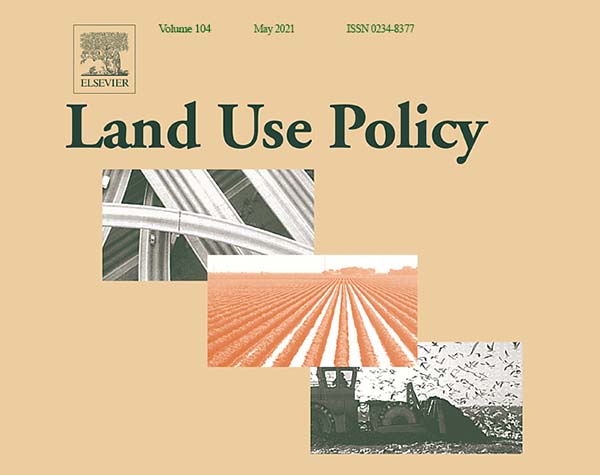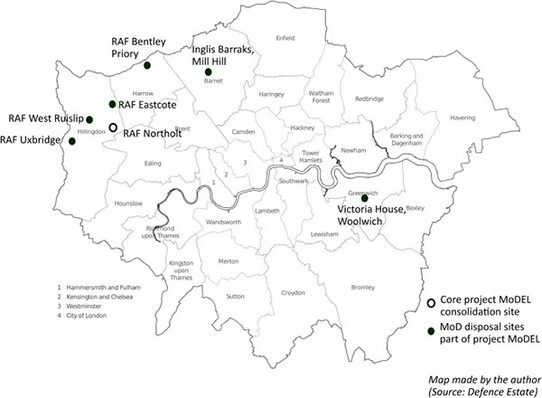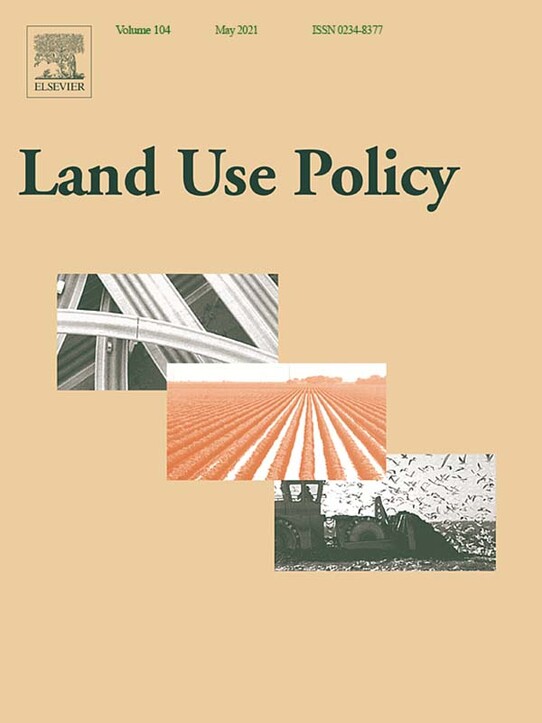Paper | "Sale of public land as a financing instrument"

4 mai 2021
"Sale of public land as a financing instrument. The unspoken political choices and distributional effects of land-based solutions", by Francesca Artioli (associate professor at the Paris School of Urban Planning - EUP, academic coordinator of the International Master in Urban Planning - track European Cities), in Land Use Policy, vol. 104, Elsevier, May 2021.
"Sale of public land as a financing instrument", by Francesca Artioli
"In recent years, the sale of public land has become a fairly widespread financing solution: capital gains obtained from the sale and redevelopment of public land, and secured through the planning system, are employed to fund new public infrastructure or facilities. While this is often presented as an optimum solution for hard-up public authorities, this paper draws on the sociology of policy instruments to shed light on the unspoken political choices and uneven distributional effects of land-based financing. These choices concern the aims of public land use (where financial uses are prioritized over redistributive/productive uses), the roles played by public authorities (whose role as speculative landowner is prioritized over that of land use regulator), and the coordination of both land sales and redevelopment (where market coordination is prioritized over political coordination). Based on a case-study of the Ministry of Defence Estates London (MoDEL) project, this paper shows how these choices have been institutionalized into binding financial calculations and contractual agreements that actually limit the use of public land, overlook alternatives, drive up land values and exacerbate exclusionary effects.*"
→ https://doi.org/10.1016/j.landusepol.2020.105199 [Last visited on May 4, 2021].
[*Ces dernières années, la vente de parcelles de terrains publics est devenue une solution de financement assez répandue : les profits réalisés via la vente et le redéveloppement des terrains publics, et garantis par le système de planification urbaine, sont alors employés pour financer de nouvelles infrastructures et services publics. Et tandis que la chose est souvent présentée comme étant une solution optimale pour des administrations en difficulté financière, cet article s'appuie sur la sociologie des instruments d’action publique pour mettre en lumière les choix politiques implicites et les effets distributionnels inégaux attachés au financement par la vente de foncier et immobilier publics. Ces choix touchent aux finalités de l'usage des terrains publics (quand les usages financiers priment sur les usages productifs/redistributifs), aux rôles joués par les autorités publiques (dont le rôle de propriétaire spéculatif prime sur celui de régulateur des usages du terrain), et à la coordination aussi bien des ventes que du redéveloppement des terrains (quand la coordination par le marché prime sur la coordination politique). Basé sur l'étude de cas du projet "Ministry of Defence Estates London" (MoDEL), l'article montre comment ces choix ont été institutionnalisés en calculs financièrement contraignants et en accords contractuels qui, de fait, limitent l'usage des terrains publics, négligent les alternatives, font augmenter la valeur et exacerbent les effets d'exclusion.
Traduction française révisée par l'autrice, Francesca Artioli.]

